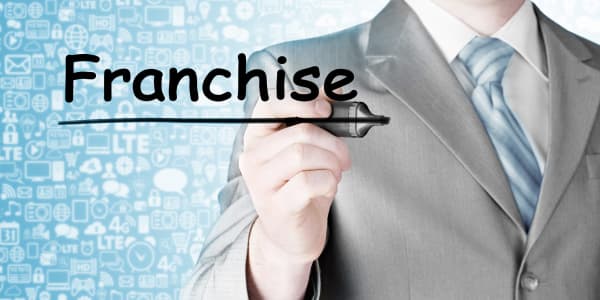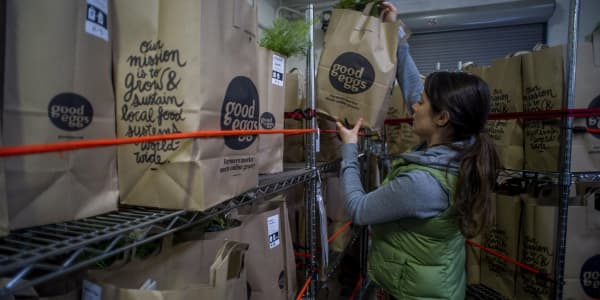Social media is an essential part of business today, but it's one that should come with a warning label.
Interacting with customers and fans of your company can be a tremendous marketing tool. It can also be a recipe for disaster. One slipup—or, in countless cases, a social media manager accidentally tweeting to the company account instead of their own—can make companies accidental laughingstocks (like the time in 2011 when the American Red Cross Twitter feed announced "When we drink, we do it right #gettngslizzard").
Sometimes the trouble a company gets into is a lot more serious—and potentially harmful to corporate reputations.
Here are high-profile examples of social media campaigns that went awry and, of course, viral.
JPMorgan Chase
Q&A sessions aren't unusual on Twitter, but it's a good idea to get a sense of the prevailing winds before launching one. Last November, with antibanker sentiment still running high, the investment and services portion of JPMorgan Chase asked followers to send questions to investment banker and company vice chairman Jimmy Lee. What it got were questions like, "Can I have my house back?" and "What is more satisfying: securities fraud on unsophisticated pension fund investors, or foreclosing on those you gave Alt-A loans?" The Q&A was quickly canceled.
Lesson learned: Social media can become "occupied" in a hurry, especially the corporate version of it.
McDonald's
If JPMorgan's attempt to engage its customers was a flop, McDonalds' efforts were a catastrophe. In early 2012 it launched a Twitter campaign encouraging patrons to use the hashtag #McDStories to tell heartwarming tales about experiences at the restaurant. Instead, the Twitter snark army took control, filling the site's feed with horror stories. McDonald's, which had paid to promote the campaign, canceled it within two hours. The hashtag is still being actively used today, and the tales being told are no more complementary.
Lesson learned: Social media and the sharing economy may seem like one big happy family paying forward positivity, but the snark is everywhere. And you better not forget it.
Epicurious
The nation was shaken by the April 15, 2013, bombing of the Boston Marathon. Less than 24 hours later, though, Epicurious made the baffling decision to use the attack to promote two breakfast recipes, with one tweet reading "Boston, our hearts are with you. Here's a bowl of breakfast energy we could all use to start today." As complaints flooded in, the site removed the postings. It then doubled down on the bad decisions, by replying to every complaint with a cut- and-pasted statement. Before long, all of those statements were removed, and the site posted a more heartfelt apology.
Lesson learned: Do not try to creatively handle tragedy in a post or tweet. We repeat: Do not.
HMV
If you're going to have staff cutbacks, you probably want to make sure the people you're letting go don't have continued access to your social media feeds. Retailer HMV figured this out last January when staff members live tweeted a corporate bloodletting in the U.K. on the store's official feed. "We're tweeting live from HR where we're all being fired! Exciting!!," wrote one post, which was followed by another, reading, "60 of us being fired at once." The coup de grâce, though, came from a subsequent tweet, stating, "Just overheard our Marketing Director (he's staying, folks) ask 'How do I shut down Twitter?'"
Lesson learned: Make sure you have an HR and PR strategy to get ahead of bad news; otherwise, it will get away from you.
National Rifle Association
National tragedies too often result in social media disasters for organizations. The NRA's American Rifleman account (described as the "official journal of the National Rifle Association") learned this the hard way on July 20, 2012, the same day as the Aurora, Colorado, shooting at a movie theater that left 12 people dead and 38 wounded. An employee, apparently unaware of the tragedy, hopped on the Twitter account at 9:20 a.m. ET and wrote, "Good morning, shooters, Happy Friday! Weekend plans?" It was removed three hours later.
Lesson learned: Check the news before you tweet.
House of CB
The NRA wasn't the only company that had an ill-informed employee at the keyboard during the 2012 Colorado shootings. U.K. clothing store House of CB also had an inappropriate tweet that day, reading, "#Aurora is trending, clearly about our Kim K inspired #Aurora dress ;)." The company, when it realized what was actually happening, quickly removed the tweet and apologized profusely.
Lesson learned: See last slide.
The Onion
The Onion usually writes some of the sharpest parody around, but its 2013 Oscars joke tweet calling a 9-year old actress arguably the most objectionable and offensive word you can call a woman shocked even loyal fans. Readers turned on the site, saying it had gone much too far, and media outlets quickly reported on the incident, heightening the damage to the brand. The Onion deleted the tweet without comment that night. The next day, on its Facebook page, the company's CEO wrote a very humble apology.
Lesson learned: Don't assume because you're known for being funny, you can get away with any kind of "funny."
The Gap/American Apparel
As Hurricane Sandy slammed into the East Coast in 2012, the clothing chain managed to raise the ire of shoppers by blending a sales pitch with its concern, tweeting, "All impacted by #Sandy, stay safe! We'll be doing lots of Gap.com shopping today. How about you?" When criticisms began to roll in, the company removed the post and apologized.
Around the same time as the Gap gaffe, American Apparel sent out an email blast to its customers advertising a "Hurricane Sandy Sale," saying, "In case you're bored during the storm, 20 percent off everything for the next 36 hours." That led to a swell of angry comments on Twitter. The company later said it didn't mean to offend anyone, but it stopped short of a real apology, telling Fashionista, "If we made a mistake here it came from the good place of trying to keep the machine going—for the sake of our employees and stakeholders."
Lesson learned: We repeat: Do not try to creatively handle tragedy in a post or tweet. We repeat: Do not.
Entenmann's
Here's another example of finding out why a phrase is hot among Twitter users before using it in your marketing. In 2011 the phrase #notguilty was trending on Twitter as the Casey Anthony verdict came in. Likeable Media, a third-party group that handled social media for Entenmann's, apparently didn't notice that, though, and posted "Who's #notguilty about eating all the tasty treats they want?". Nine minutes later it realized its mistake and apologized—both on the dessert company's feed and its own Web page.
Lesson learned: Don't believe anything is ever trending because of you. It could just be a coincidence, and not a happy one in the final analysis.
American Airlines
Sometimes you don't have to do anything wrong to still make a social media mistake. For American Airlines, the problem was using auto-replies. For example, an angry customer savaged American in a tweet last year, only to receive a reply reading, "Thanks for your support! We look forward to a bright future as the #newAmerican." (It was later deleted, and a more personalized one was substituted—but not before the comment and reply had made the rounds.)
Lesson learned: Technology is great in the way it can reach everyone, but it's still pretty stupid.
Progressive Insurance
Progressive learned the dangers of letting a bot handle its Twitter feed as well. In 2012 the company was on the hot seat over controversy regarding its handling of a high-profile 2010 accident. That, not surprisingly, led to a slate of hostile tweets. Each of those was met with a scripted, automatic reply, accompanied by the smiling face of spokeswoman Flo (an actress from popular Progressive commercials), which didn't calm anyone down.
Lesson learned: See last slide.
Applebee's
When a waitress at the popular food chain Applebee's took to Reddit a scanned copy of a receipt that featured a haughty comment from a customer, she quickly lost her job for breaching company policy. The Internet took her side, though, and the incident quickly took on a life of its own. The next day, the company posted its side of the story on its Facebook page, which opened the floodgates for thousands of angry comments. It was almost impossible to keep up with the comments, so social media managers began cutting and pasting the corporate policy statement. That only further infuriated people. Eventually, as the comment count topped 20,000, the company disabled user posts to the Facebook page, again increasing the ire of customers and sealing the incident's fate as one of the worst social media flubs on record.
Lesson learned: Don't work for Applebee's.
Burger King
Facebook was starting to really take off in 2009, and Burger King thought it saw an opportunity. It released an app encouraging people to unfriend 10 people on the social media site in exchange for a free Whopper. And to rub salt in the wounds of those people sacrificed in exchange for a single bite, the chain would write them and inform them they'd been dropped. All totaled, some 234,000 online friendships were severed before Facebook suspended the program.
Lesson learned: Great idea for a can't-miss social media campaign? You might want to check whether it could trigger privacy concerns.
Amy's Baking Company
When the owners of this Scottsdale, Arizona, restaurant melted down on Gordon Ramsay's "Kitchen Nightmares," it was bad. But the next day, they took to social media—and things went from bad to nightmarish.
"You are all little punks," the restaurant wrote on Facebook. "Nothing. you are all nothing. [sic] We are laughing at you. All of you, just fools. We have God on our side, you just have your sites." Soon the posts were full of obscenities. Then they became tirades written entirely in capital letters. Then it was legal threats to any Facebook, Reddit or Yelp commenters. And then it got weird.
The owners claimed their Facebook, Yelp and Twitter accounts, as well as their Web page, had been hacked. Experts said that was extremely unlikely. Eventually, Amy's Baking Company hired a PR firm to help them. (That company quit five days later.) The Facebook page is long gone, but the restaurant still has a Twitter page and still regularly spars via social media with critics and trolls.
Lesson learned: When feeling emotional—especially if you're already in the public eye—stay away from social media. It will still be there when you come back to your senses. And you'll make better use of it.




